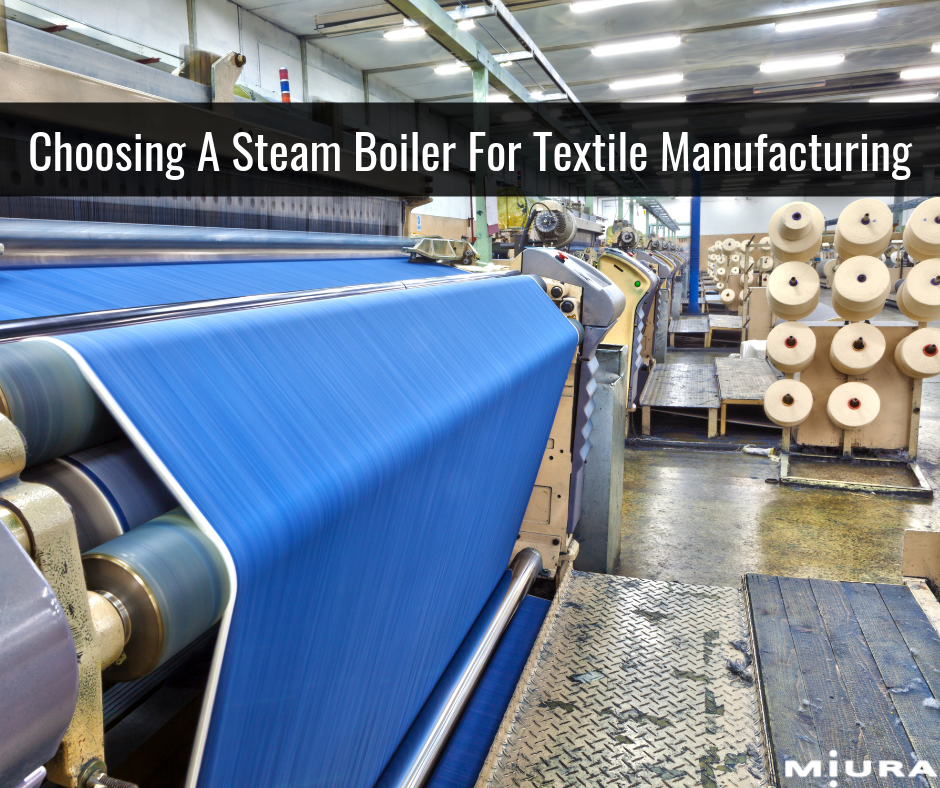 Most people don’t realize it, but steam plays a huge role in the manufacturing of textiles. It doesn’t matter the fabric or the purpose, large amounts of steam are required in the process of textile manufacturing. Of course, this requires an industrial steam boiler to produce the steam a manufacturing plant will need on any given day to keep up with production. For any textile manufacturing operation, here are a few things you should be looking for when choosing a steam boiler.
Most people don’t realize it, but steam plays a huge role in the manufacturing of textiles. It doesn’t matter the fabric or the purpose, large amounts of steam are required in the process of textile manufacturing. Of course, this requires an industrial steam boiler to produce the steam a manufacturing plant will need on any given day to keep up with production. For any textile manufacturing operation, here are a few things you should be looking for when choosing a steam boiler.
Flexibility
This is perhaps the most important quality textile manufacturers need in a boiler system. Steam needs during textile operations tend to be a little erratic, fluctuating over the course of the day. This requires boilers that can be shut off when they’re not needed so that water and fuel aren’t unnecessarily wasted. At the same time, the boilers need to be easy to turn on when the need for steam spikes during certain periods of the day.Conventional fire tube boilers usually don’t have great flexibility. If they don’t run idle, which wastes fuel and money, it can take a while before they’re able to run at peak capacity. A better option for most textile manufacturers is the smaller, modular boilers like the ones made by Miura. These water tube boilers can start producing steam from a cold startup in less than five minutes, allowing them to respond quickly to the changing steam demand of textile manufacturing.
Fuel Efficiency
Obviously, most textile manufacturers would prefer to invest their money in quality fabric rather than fuel. Of course, this requires a boiler system that can be cost-effective when it comes to burning fuel. With fluctuating steam needs, it can be difficult to find boilers that can keep up with the changing needs of textile manufacturing and remain fuel-efficient at the same time.With the ability of Miura boilers to turn on and off with ease as steam demand rises and falls, they are the most fuel-efficient industrial boilers available. It rarely makes sense to keep Miura boilers running idle, which means they only consume fuel when they’re producing steam. Many textile manufacturers that have switched to Miura boilers from conventional fire tube boilers report a 20% saving in fuel costs, which can lead to massive savings over the long run.
Ease of Maintenance
This is one aspect of boilers that too many textile manufacturers overlook but is actually vital to the operation. If a boiler breaks down or needs to undergo routine maintenance, it can force the entire manufacturing process to shut down. Obviously, this isn’t ideal for maintaining productivity, even if it’s a necessity.This is another area where Miura boilers are superior to traditional fire tube boilers. With several smaller boilers, one can be shut down for maintenance purposes while the others continue to run, so manufacturing doesn’t have to stop. The same is true is one needs to be shut down for repairs. Miura boilers can also undergo routine inspections in less than a day whereas larger boilers may need to be shut down for several days while undergoing maintenance. Contact Us




